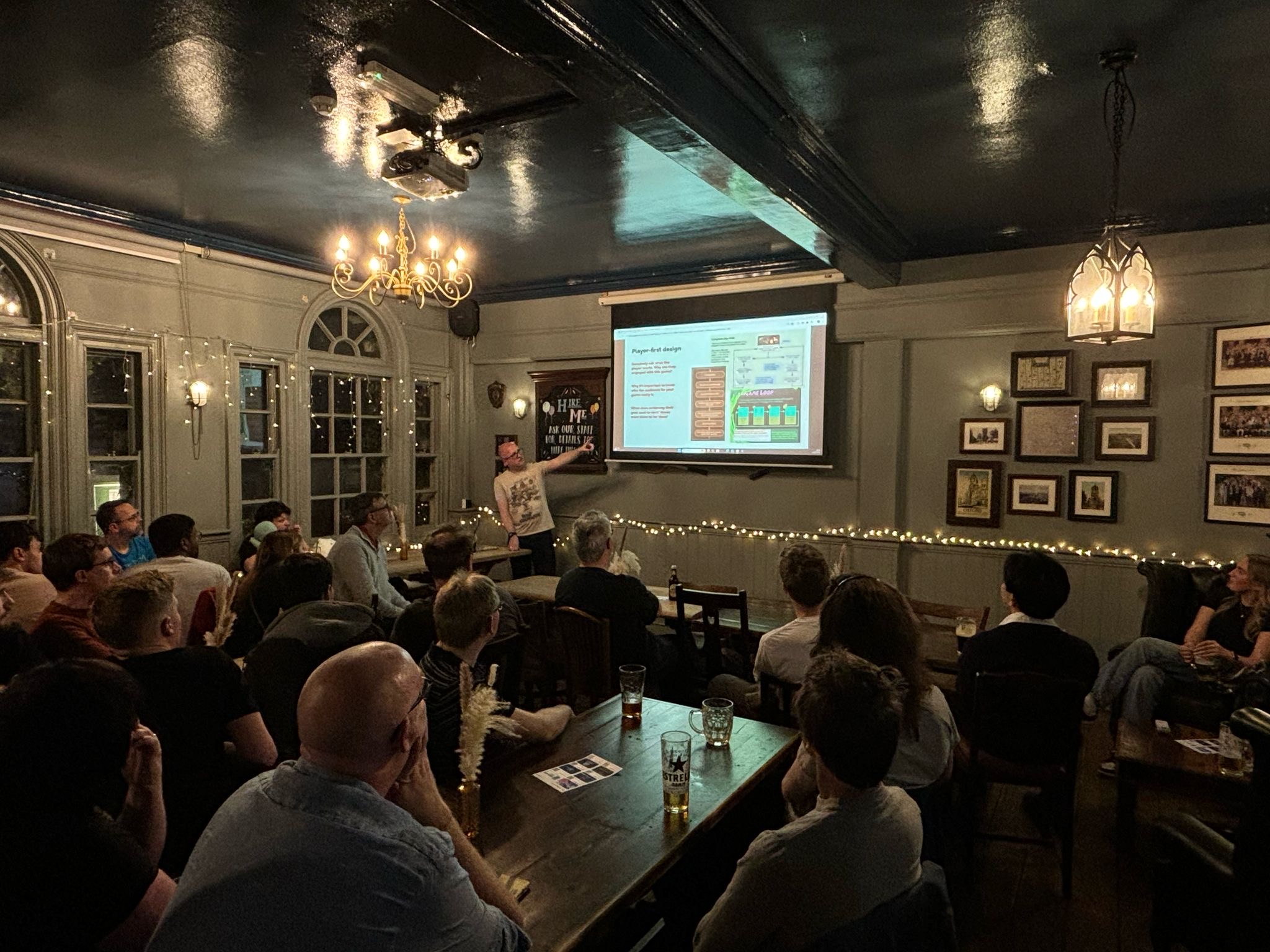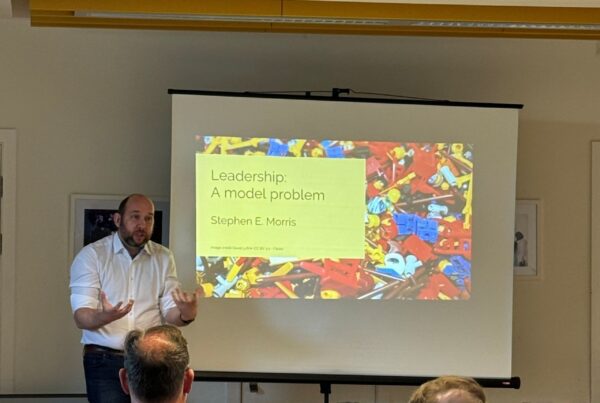On Wednesday 26th March, the Oxford Video Games meet-up (OXVG) once again brought the local gaming and game development community together at St Aldates Tavern for an evening of ideas, inspiration, and insight. Organised and hosted by Humand Talent, a leading Recruitment Business in the Talent Solutions space, the event focused on a fascinating topic: what really keeps players hooked?
Before we got stuck into the evening’s talk, we kicked things off with friendly networking over drinks. Attendees mingled with software engineers, designers, game developers, and creative minds from across Oxfordshire and beyond – a real melting pot of industry passion and innovation.
🎮 Talk Recap: Stuart Maine on Gameplay and Compulsion Loops
The headline session was delivered by Stuart Maine, a veteran designer with decades of experience shaping player experiences. His talk delved deep into two fundamental game design principles: gameplay loops and compulsion loops. These aren’t just buzzwords – they’re the psychological and mechanical foundations of successful games.
Gameplay Loops form the backbone of a player’s journey. These are the core activities repeated throughout a game – like collecting resources, crafting tools, or dodging obstacles. Think of the rhythmic satisfaction in platformers like Super Mario Bros. – the continuous run-jump-defeat cycle is refined to perfection, encouraging players to stay engaged through action alone.
Compulsion Loops, meanwhile, add a motivational layer. They tap into players’ desire for reward – whether it’s XP, loot, or story progression. These loops create a cycle:
- Action – The player performs an activity (e.g. a battle).
- Reward – They receive a payoff (e.g. loot box or level-up).
- Motivation – This fuels their desire to go again.
In games like Clash Royale, players engage in short, repeatable battles to earn cards and chests, and the thrill of anticipation keeps them coming back. Stuart also discussed the ethical implications of compulsion loops, urging designers to be mindful of manipulative mechanics.
Attendees were treated to a thoughtful breakdown of how these loops can be both fun and fair – keeping players immersed without crossing into exploitative territory. The talk closed with a vibrant Q&A, with participants keen to apply these concepts to their own projects – from indie prototypes to AAA ambitions.
🎤 Got Something to Say? We Want You on Stage!
Whether you’re a game developer, a software engineer in Oxford, or someone with fresh insight into game design, we’re always on the lookout for engaging speakers. If you have a unique perspective on gameplay mechanics, creative storytelling, or design innovation, we’d love to hear from you.
💬 Interested? Submit your talk idea via this Microsoft Form. And yes – we’re still welcoming sponsors for upcoming events. Be part of the conversation that’s shaping Oxford’s games scene! Get in touch via hello@humand.co.uk
📅 What’s Next?
The next OXVG meet-up is coming your way on Wednesday 28th May, and trust us – you won’t want to miss it. Expect more dynamic talks, new connections, and a chance to dive even deeper into the world of games and software engineering. Save the date and get your RSVP in early – we’ll be announcing the full line-up soon.
Until then – keep exploring, keep designing, and stay inspired.
Cheers,
The OXVG Team
Powered by Humand Talent – Talent Solutions and Recruitment Business for the Software Engineering and Games Industry
#OxfordGames #GameDesign #GameplayLoops #CompulsionLoops #HumandTalent #RecruitmentBusiness #TalentSolutions #SoftwareEngineersOxford #GameDevUK #OXVG #GamingCommunityUK #GameDesignTalks #GamersOfOxford #IndieGameDev #MeetUpOxford




